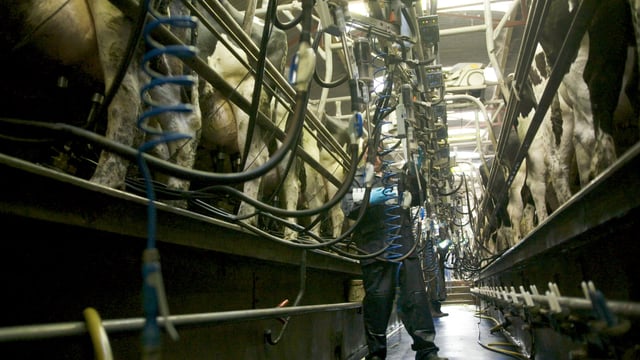Supreme Court: Compensation on entire land holding for pylons
The Supreme Court has ruled that landowners are entitled to compensation for depreciation of land value across their entire land holding when the ESB erects electricity pylons on the land.
This judgement was based on an appeal taken against a decision of the High Court, which found that the compensation was limited to the strip of land beneath the the power lines.
The case was taken by Peter and Rose O'Reilly, landowners in Co. Cavan, against the ESB.
Mr. Justice Brian Murray delivered the Supreme Court's judgement on the appeal.
Outlining the details of the case, the judge said that the appellants argued that, when an electric line and supporting poles and pylons are places above and on their lands, they are entitled to be paid sums reflecting more than just the impact on the value of the particular strip of land traversed by the line, or the area occupied by the poles or pylons.
They also argued that they are entitled to compensation for the loss of value of house sites on the holding across which the lines travel, and that they are entitled to be compensated for a general loss of value to that holding (referring to this as 'injurious affection').
The ESB disputed that there is any such entitlement.
A property arbitrator, who was also listed as a respondent in the case, was appointed under the Acquisitions of Land (Assessment of Compensation) Act 1919, and agreed that the O'Reillys were entitled to this type of compensation.
The ESB sought a judicial review of this finding, with the High Court finding that the arbitrator erred in his decision.
In partially overturning the High Court finding, Mr. Justice Brian Murray of the Supreme Court found that the High Court judge was in error if he decided that the 1919 act precluded a claimant from seeking compensation for what has been termed 'injurious affection', namely the depreciation of the value of their holding caused by the presence on the O'Reillys' land of the electric line and poles and pylons.
The judge said that the word 'compensation', when it appears in legislation, should be construed as embodying the principles of equivalence; and, in the absence of any express legislative stipulation supporting the ESB's argument, there is no logical reason to limit the compensation payable to the strip of land under the line.
The judge decided to allow the O'Reillys' appeal insofar as the High Court judge was in error in finding that compensation under the relevant legislation did not encompass compensation for depreciation in the value of the entire land holding.
The judge said it will be a matter for the arbitrator to determine the compensation to be awarded, but that the arbitrator, together with the valuers retained by the respective parties, should have regard to the judgement that compensation comprising depreciation of this kind is available.





